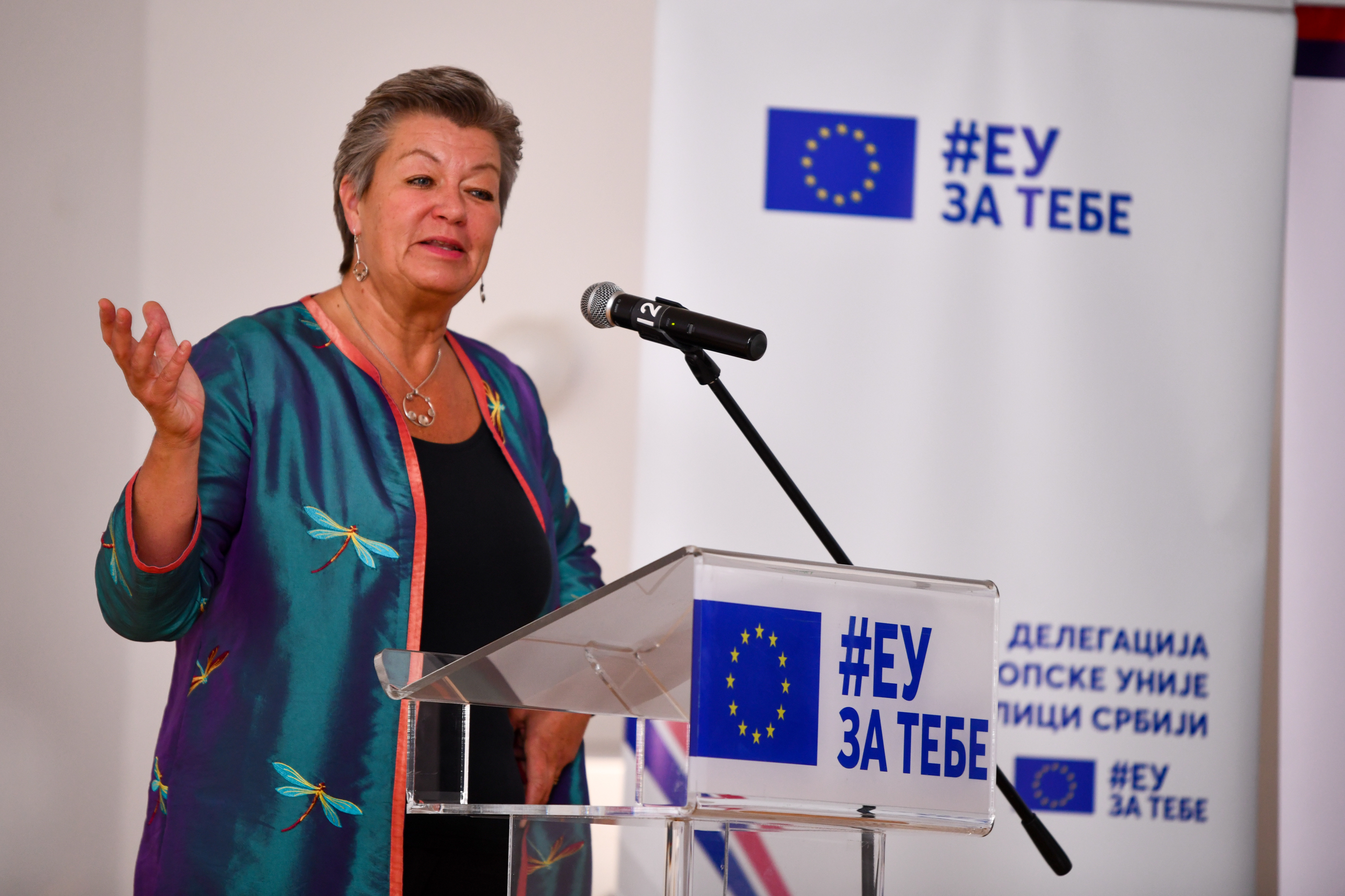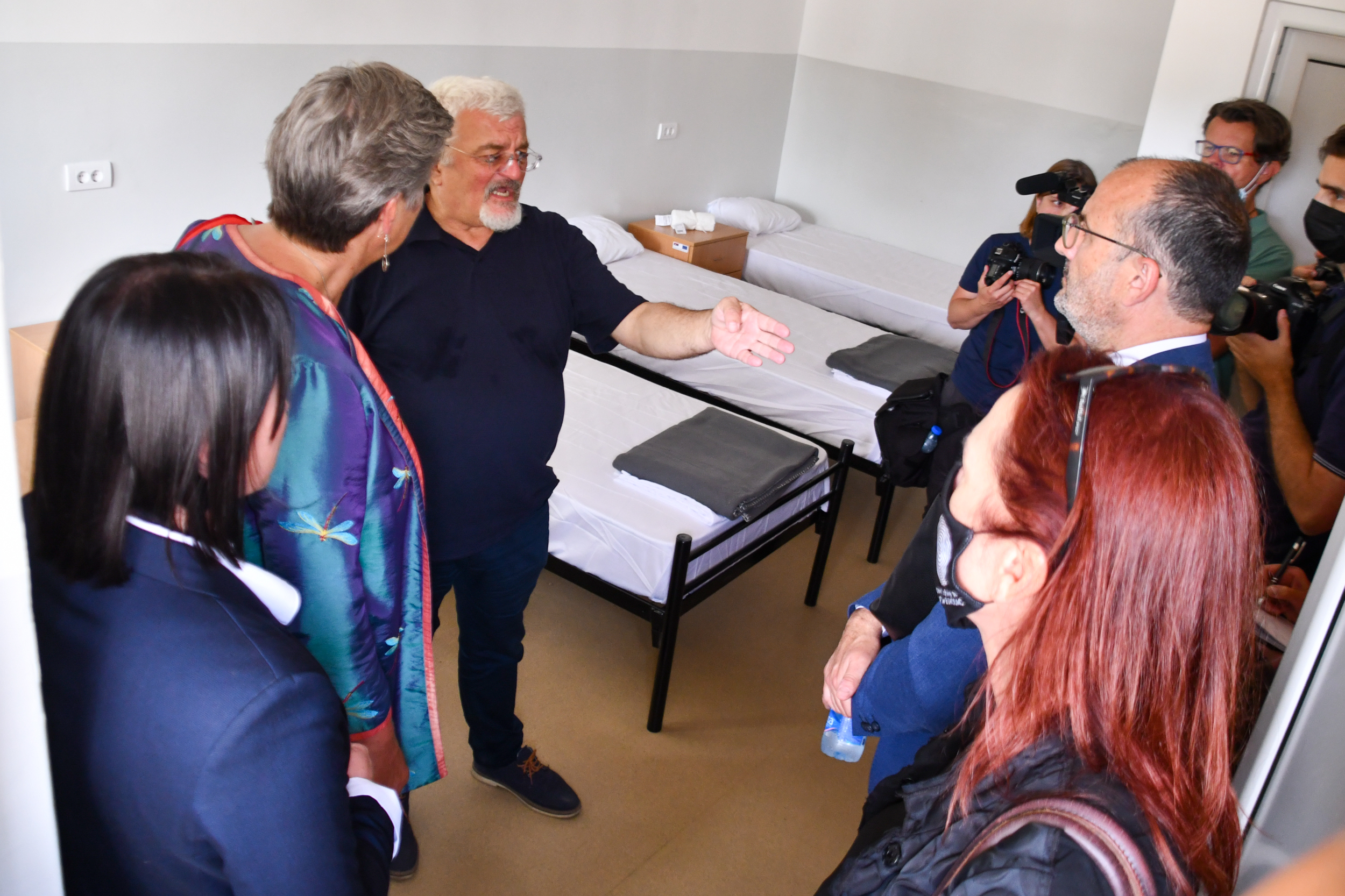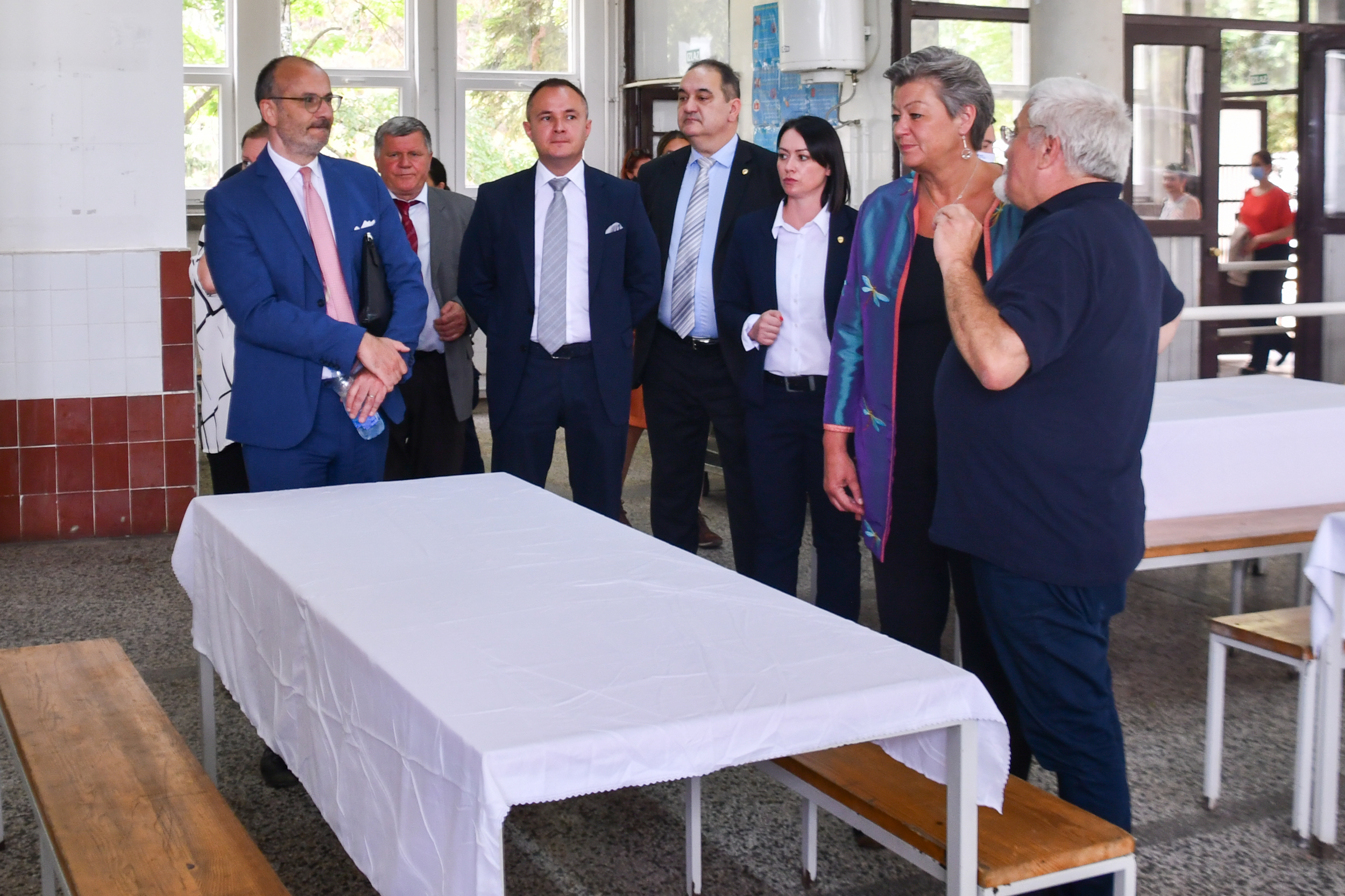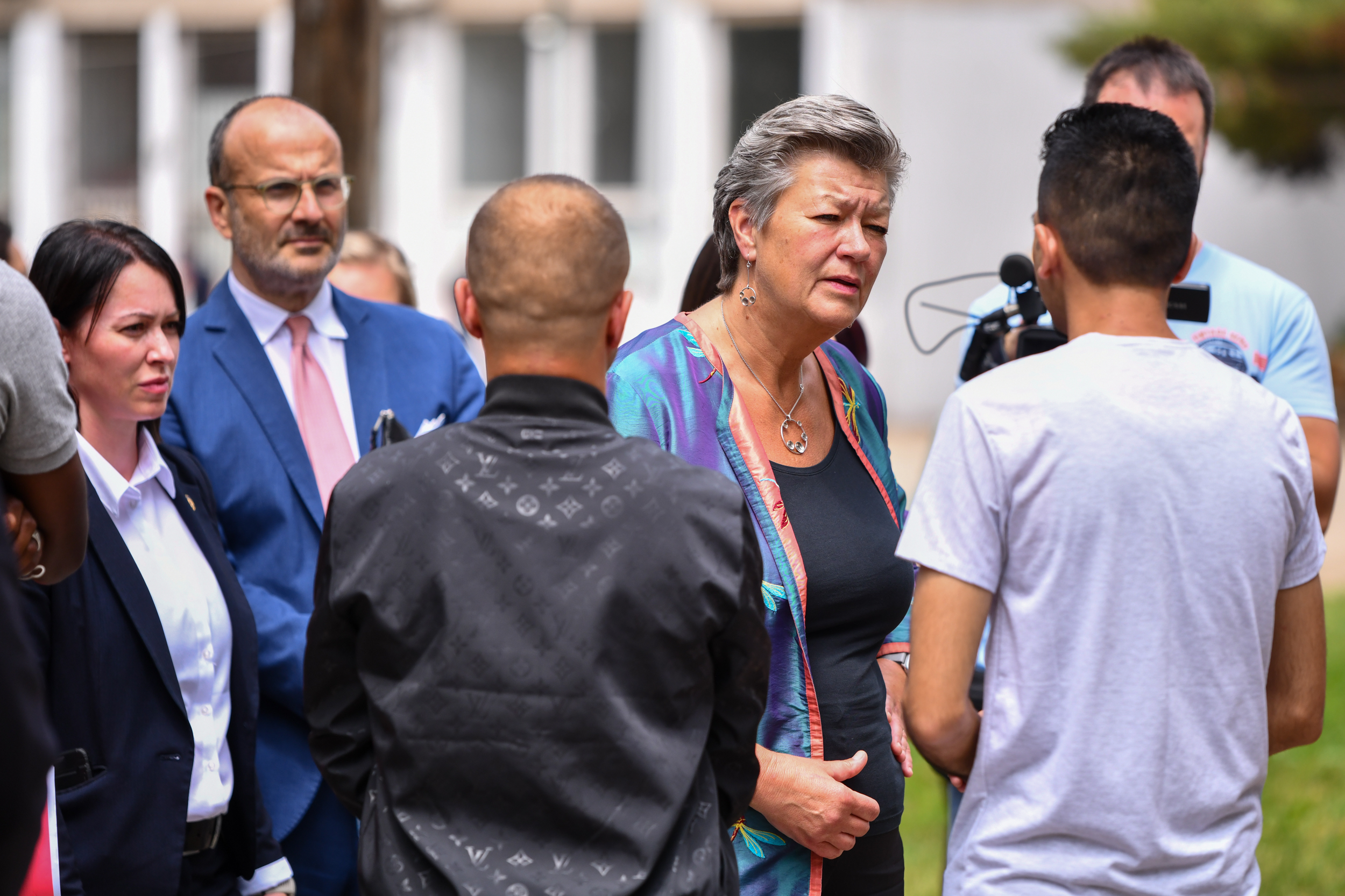During a two-day visit to Serbia, European Commissioner for Home Affairs Ylva Johansson visited the Reception Center in Obrenovac, recently renovated with EU financial support. Accompanied by EU Ambassador to Serbia Sem Fabrizi, Commissioner for Refugees and Migration Vladimir Cucić, State Secretary of the Ministry of Interior Bojan Jocić, Assistant Minister of Finance Marko Jovanović and Obrenovac Municipal Council Member Dragan Mladenović, the Commissioner visited accommodation and food facilities within the centre and talked with several users of this centre.
As part of the European Union’s support for migration management in Serbia, four accommodation buildings, a kitchen, two heat substations, as well as a control room and infrastructure were reconstructed in the former military facility “Bora Markovic” in the municipality of Obrenovac. Furthermore, the centre and its facilities (living space, educational centre, library, kitchen, dining room) are adequately equipped in accordance with European standards.
“It is important to show in action how EU support works in Serbia. It is crucial to build a long-lasting and orderly migration management system. No country can do it alone. Not only within the EU, but we must do it together with our partners from the environment. Cooperation is crucial. Migration is not a new phenomenon, it has always existed and will never stop. That is why we are here to strengthen cooperation – border control, smuggling prevention, migration management, and other areas of the rule of law. Migrants bring new energy. Like all people have their hopes and our dreams.We are all human beings who have our dignity.

Illegal entries should be reduced, and legal ways of entering the European Union should be improved. Every year, 3 million migrants come to the EU, while one and a half million people leave the EU. The European Union is growing thanks to migration. That is why they need to be legal and regulated. I am glad to be in Obrenovac today, because Serbia has proven to be one of the reliable partners in this process, “said Commissioner Johansson.
The host of the gathering was Vladimir Cucić, Commissioner for Refugees and Migration of the Government of the Republic of Serbia. “We have made some promises and I think we have fulfilled them. I think it is time to develop the whole system further. It is time to prepare not only us, but the entire region, in a structural and valid way to successfully and orderly manage migration “, said Cucić.

On behalf of the CFCU and the Ministry of Finance, the project was managed by the Assistant Minister, Mr. Marko Jovanović. “The presence of migrants and refugees implies constant care for that population, so in a broader sense, projects like this are crucial for their care. The value of the realized project is 3.2 million euros, of which the contribution of the Republic of Serbia is 230,000 euros. What preceded the successful implementation of this project in the area of competence of the Sector for Contracting and Financing of EU Funds are the preparation of documentation for public procurement, then evaluation and contracting, contracting of four contracts, namely: design service contract, works contract, service contract supervision and contract for procurement of equipment / furniture. Through this project and the support of the European Union, the accommodation capacities for asylum seekers have been reconstructed and the kitchen has been fully equipped. The importance of the pre-accession assistance of the European Union and its results are evident in many areas, and projects like this, best reflect the importance of that assistance and the impact on the quality of life of the most endangered, “said Jovanovic.

A number of activities have been carried out to provide asylum seekers with adequate accommodation. In the first phase, during 2018, the main project documentation was prepared, including project and tender documentation. Reconstruction of the centre began in June 2019, and all works were completed in December 2020. The reconstruction has increased the capacity to accommodate 300 asylum seekers (which can be increased to 600 in crisis situations).
EU support for migration management in Serbia addresses many migration challenges, including providing humanitarian assistance and protection to migrants, especially children, by providing reception and care facilities in reception and asylum centres, including food, health and education, and providing assistance to local communities in which migrants reside in order to strengthen social cohesion. The EU offers support to the Republic of Serbia in its efforts to protect its borders and fight against the smuggling of migrants, as well as to strengthen the capacity of institutions responsible for migration management.




